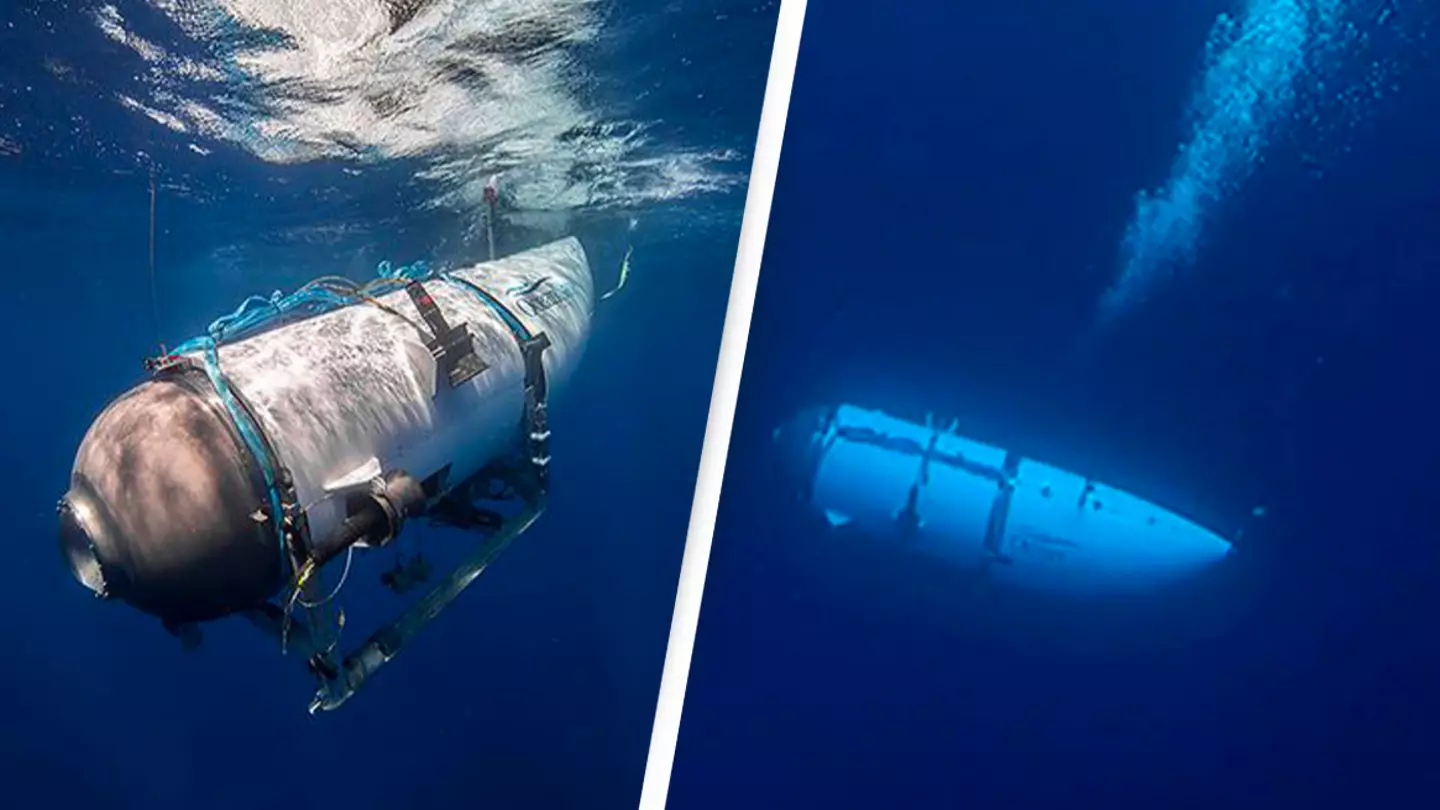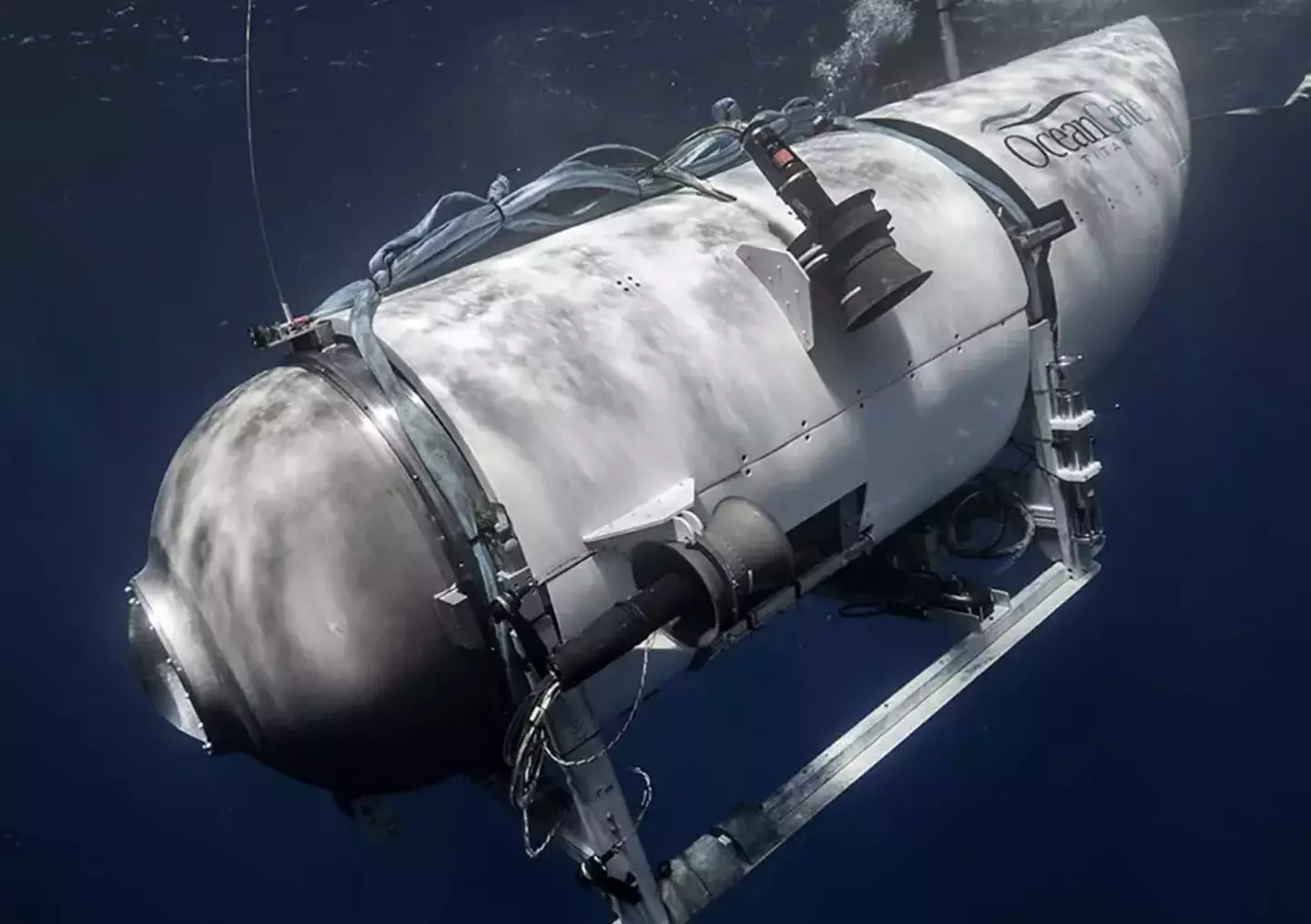
The air supply on the missing Titan submarine has run out, according to a prediction from the US Coast Guard.
It had initially set off for Sunday morning, with an estimated 96 hours’ worth of oxygen onboard – more than enough for the 10 hours exploratory dive.
Tragically, rescue teams have been unable to locate the vessel and are still exploring the area surrounding its last known location.
Advert
Currently, US coast guard are searching an area roughly 435 miles off the coast of St John’s, Newfoundland, where the sub last made contact.

At the time, the Titan and its crew had been on a voyage to the Titanic shipwreck, which lies at the bottom of the Atlantic Ocean.
Onboard were three passengers, including British billionaire explorer Hamish Harding, Pakistani businessman Shahzada Dawood and his 19-year-old son Suleman.
Advert
Joining them was French diver Paul-Henry Nargeolet, as well as OceanGate’s CEO Stockton Rush – whose company is one to offer the tour.
There have also been reports of a ‘banging’ being heard by a Canadian aeroplane, which was picked up by the aircraft's sonar system.
A leaked email from the Department of Homeland Security later confirmed this, stating: "RCC Halifax launched a P8, Poseidon, which has underwater detection capabilities from the air reported a contact in a position close to the distress position."
Sadly though, officials have been unable to locate the sound, nor the missing Titan sub.
Advert
There is now little hope of finding them alive, as it’s thought the crew’s oxygen supply will have ran out at around 7:08 am local time (12:08 pm in the UK), according to a spokeswoman for the US Coast Guard.

As their air supply dwindled, an expert said that it’s likely that the men could suffer from hypercapnia – a potentially fatal condition caused by excessive carbon dioxide entering the bloodstream.
Those affected will often become drowsy beforehand as the body begins to shut down.
Advert
With no sign of the missing vessel though, the US coast guard have continued their search, with Captain Jamie Frederick telling the press that they had to remain ‘remain optimistic and hopeful’.
Other teams have also joined the search, including French, Canadian and British groups, as they try to locate the Titan – searching an area estimated to roughly be twice the size of Connecticut.
In the days prior, remotely operated vehicles (ROV) had been deployed in a desperate bid to find the missing sub, with devices capable of diving to depths of 19,600ft.
According to Olivier Lefort of Ifremer, the research facility that operates the robot, it can work 'non-stop for 72 hours'.
Advert
"Victor is able to do visual exploration with all the video equipment it has." he said.
"It is also equipped with manipulating arms which could be used to extricate the sub, such as by sectioning cables or things that would be blocking it at the bottom."
As the search for the Titan intensifies, the US Coast Guard have been giving daily updates at 6 pm.
Topics: Titanic, World News, US News
